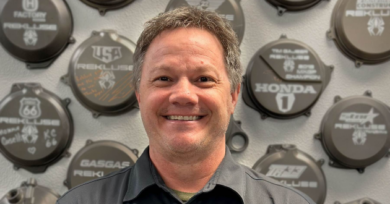Do you staff managers, or managers in name only?
Manager — mánn-ij-er (noun): Somebody who is responsible for directing and controlling the work and staff of a business, or of a department within it.
MINO — my-know (acronym): Manager-in-name-only. Someone who has the title, but does not have the empowerment, responsibility or accountability of a true manager
Do you have managers or MINOs working in your dealership?
One of the questions I ask the students attending our parts management and service management workshops is: “Do you have a budget for your department?” To my surprise, almost none of the managers attending these workshops indicate that they have a budget for their department. In addition, most of the managers admitted that although they had a certain amount of input, they did not have the authority to hire or fire the staff for their department.
Most of the managers who attend our training sessions come from fairly high-level dealership operations. Many of these dealers are members of 20-groups. I would expect them to be utilizing more advanced business management techniques than the majority of powersports dealers. However, that is apparently not the case.
Most business operations outside of our industry would consider budgeting and personnel management to be key functions of their managers. I found myself wondering how our powersports dealers could hold their managers accountable for the performance and profitability of their departments without these responsibilities.
If the department does not have a budget, the manager cannot make determinations on marketing, purchasing supplies, displays or equipment. The manager has no clue if there is the capacity to hire additional staff or change the compensation plan. Instead, they have to go to the owner for all these decisions. What is the point of having a manager, if they don’t have the ability to make basic management decisions?
Delegate authority
Here is a classic example of the frustration encountered by a non-empowered manager. I have a close friend who is a sales manager. She is responsible for the performance of her staff of eight salespeople. She is constantly being driven by the owner to improve the sales performance of her team. She knows that several members of the team are chronic underperformers who should have been encouraged to change careers years ago. However, she does not have the authority to fire them. In addition, her boss is one of those people who struggles with firing anyone himself.
Although she has repeatedly documented their performance failures, he will not take the action necessary to change the situation. Of course the staff is well aware that the boss “never fires anybody.” Therefore, there is no fear of losing one’s job due to failure to perform. The sales manager is being held accountable for something she cannot control.
Something that often contributes to this situation is the entrepreneurial nature of the typical dealership structure. Powersports dealerships are generally started by an individual enthusiast, who is forced to run every department in the small dealership during its early years. Later, they take on the roll of general manager as the dealership grows. However, they are reluctant to hire strong managers since they still feel they have to control every department. This structure can stifle the growth of the business, not to mention leading to burnout on the part of the owner/GM.
One of the most difficult transitions for entrepreneurs is moving from a manager mentality to an ownership position. This requires that they back off of day-to-day department management and delegate authority to strong managers. These managers must be empowered to run their department as a business entity, and be held strictly accountable for the success and growth of the department. At the same time, the managers must recognize the overall needs of the business and direct their departments appropriately.
Whether or not this is the reason, if your managers are not empowered to fully act in a management capacity, I would encourage you to consider implementing some changes. Of course you must first have personnel who have the skillset necessary for being true managers. If they are the right people for the job, work with them to develop a department budget. Give them more flexibility in controlling their personnel. Hold them accountable for achieving your specific goals for their department. Learn how to work ON your business, not IN it. In the end, your dealership will operate more efficiently and profitably and you can take the time to enjoy life more. That’s what it’s all about, isn’t it?
Steve Jones is senior projects manager at Gart Sutton & Associates. He has worked in the powersports industry for more than 30 years, for dealerships and manufacturers, and as a consultant and trainer. Contact him at steve@gartsutton.com.








